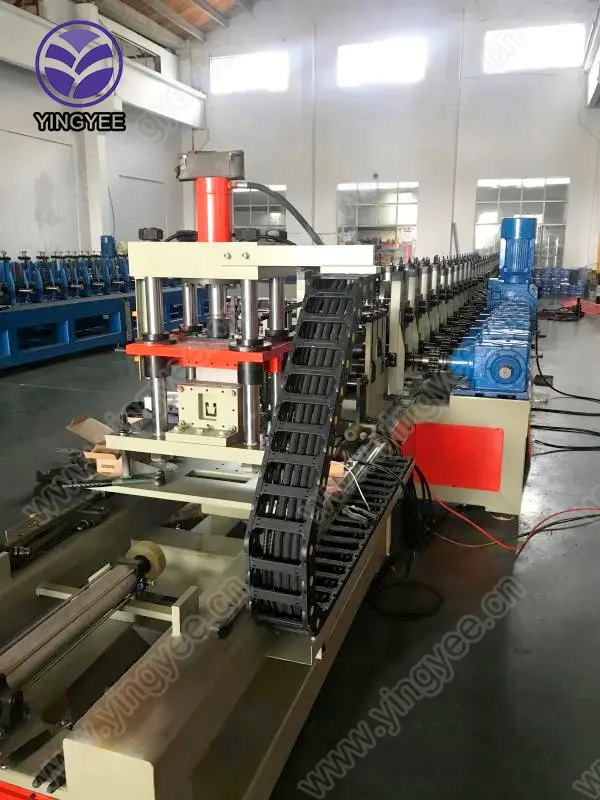
The Integration of Downpipe Roll Forming Machines and Crimping Machines in Modern Manufacturing
In the modern manufacturing landscape, efficiency and precision are paramount. Industries are continuously seeking methods to enhance their production processes, especially in the fabrication of components used in various applications, including construction and automotive sectors. Two machines that have become instrumental in this context are downpipe roll forming machines and crimping machines. Together, they streamline the production of downpipes, ensuring high-quality output while minimizing labor costs and time.
Understanding Downpipe Roll Forming Machines
Downpipe roll forming machines are specialized equipment designed to create downpipes from metal sheets. These machines operate on a continuous basis, where strips of metal are fed into a series of rollers that gradually shape the material into the desired profile. The roll forming process is highly efficient, allowing for the production of uniform and precise downpipes at high speeds.
One of the primary advantages of downpipe roll forming machines is their ability to produce complex shapes with a high level of repeatability
. This is critical in applications where components must fit seamlessly with other structures, such as in drainage systems for buildings. Moreover, because the process involves minimal material waste—thanks to the continuous nature of roll forming—manufacturers can significantly reduce their input costs.The Role of Crimping Machines
Equally important in the production of downpipes is the crimping machine, which is used to create crimped ends on the pipes. Crimping refers to the process of deforming the pipe end to create a joint that can easily connect to other sections of piping or fittings. This feature is especially important in drainage systems, where watertight seals are necessary to prevent leaks and ensure efficient fluid flow.
Crimping machines are designed to deliver consistent pressure and precision when shaping the pipe ends. Depending on the design specifications, they can accommodate various sizes and shapes of pipes, making them versatile for different manufacturing needs. The integration of crimping machines in the production line enhances the overall efficiency of the process, allowing for faster assembly and installation of downpipe systems.

Synergy Between the Two Machines
When combined, downpipe roll forming machines and crimping machines create a seamless workflow that enhances productivity. Manufacturers can produce downpipes from start to finish without the need for manual intervention, which drastically cuts down on labor costs and potential errors. The automation of these processes leads to shorter lead times and the ability to meet increasing demand in various industries.
Furthermore, the alignment of these two processes ensures that the end products meet the highest quality standards. The precision of roll forming, coupled with the accuracy of crimping, results in downpipes that not only fit perfectly but also exhibit durability and resistance to environmental factors. This is paramount in construction and plumbing applications where the performance of these components directly affects the overall system.
Environmental Considerations
As industries face stringent regulations regarding waste management and sustainability, the use of roll forming and crimping technologies presents an environmentally friendly option. The minimal waste produced during the roll forming process combined with the ability to manufacture high-quality, long-lasting products contributes to sustainability efforts. Additionally, the materials used in downpipe production can often be recycled, further reducing the environmental impact of manufacturing.
Conclusion
In conclusion, the integration of downpipe roll forming machines and crimping machines signifies a major advancement in the manufacturing of downpipes. These machines not only enhance the speed and precision of production but also contribute to cost-effectiveness and sustainability. As industries continue to evolve, the importance of these technologies is expected to grow, paving the way for innovative solutions in pipeline construction and other applications. By embracing automated manufacturing processes, companies can ensure they remain competitive in an increasingly demanding market. The future of downpipe production is bright, driven by the synergy of cutting-edge machines that prioritize efficiency and quality.